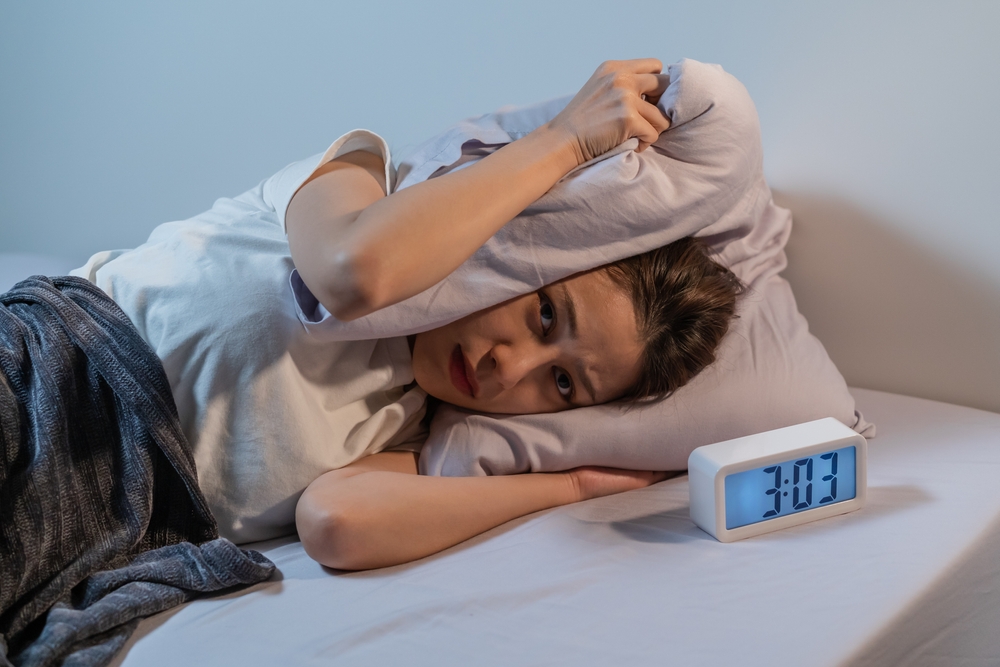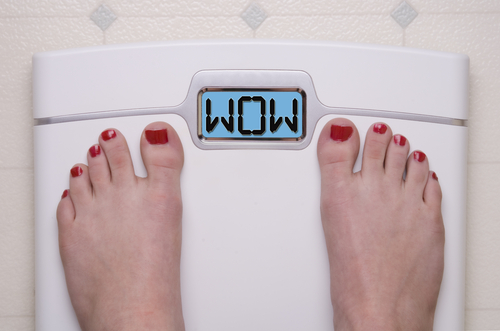
The science behind sleep and weight gain
Contrary to what some may believe, sleep is not merely a passive activity. And still, in the quest to maintain a healthy weight, we often overlook this critical factor. As we age, we might attribute weight gain to slowing metabolism or changing hormones, but there’s a silent third culprit that could be stealthily tipping the scales: your night sleep, a crucial time when your body performs vital physiological functions, including hormone regulation.
Countless medical studies have highlighted the profound relationship between sleep quality and weight control. The magic happens in our endocrine and nervous systems, where two hormones also serving as neurotransmitters—ghrelin and leptin—play their parts.
Leptin, often referred to as the ‘satiety hormone’, tells your brain when you’ve had enough to eat. Ghrelin, on the other hand, is the ‘hunger hormone’, signaling your brain that it’s time to eat. When we don’t get enough sleep, leptin levels drop, which means we don’t feel as satisfied after eating. Meanwhile, ghrelin levels rise, increasing our appetite. This double whammy can lead to overeating and, ultimately, weight gain.
Sleep deprivation & high-calorie food
Sleep deprivation also tempts us towards energy-dense foods, like those high in sugar and starch. Our bodies seek quick energy fixes, but remember: these foods can spike insulin levels and trigger fat storage.
Insufficient sleep can also cause metabolic dysregulation, contributing to blood sugar intolerance, insulin resistance, and increased oxidative stress, which is when harmful free radicals outnumber beneficial antioxidants. These conditions can lead to poor metabolism, weight gain, and various stages of diabetes.
Imagine insulin as another messenger molecule. Its main tasks are to guide sugar from the bloodstream into cells for energy and store excess sugars as fat. Lack of sleep can make cells less responsive to insulin, resulting in high blood sugar levels, which then cause insulin levels to rise, leading to more fat storage. Meanwhile, dysregulated ghrelin and leptin levels make you crave carbs and sugars, and you’re less satisfied when you eat them. It’s a vicious cycle.
Setting your sleep rhythms again
Functional medicine recognizes that sleep is not a standalone issue, but is intrinsically linked with various aspects of our health and lifestyle. It takes a comprehensive approach, examining factors like diet, exercise, stress levels, and light exposure that may affect sleep. Here are a few strategies to improve your sleep:
1. Balance your diet
What you eat can significantly influence your sleep quality. A diet high in refined sugars and unhealthy fats can throw off your sleep-wake cycle. In contrast, a balanced diet rich in lean proteins, healthy fats, fruits, vegetables, and whole grains can help regulate your hormones and promote better sleep.
2. Regular exercise
Regular physical activity is another critical aspect of sleep hygiene. Exercise can help reduce stress and anxiety, which are common causes of sleep problems. Moreover, it helps regulate your body’s internal clock, promoting better sleep-wake cycles.
3. Stress management
Managing stress is crucial for good sleep. Practices like mindfulness, meditation, and yoga can help you unwind and prepare your body for sleep. In addition, they can help lower cortisol levels, reducing the risk of sleep-disruptive hormone imbalances.
4. Control light exposure
Light plays a significant role in regulating our sleep-wake cycle. Exposure to bright light in the morning helps wake up your body, while dimming the lights in the evening signals your body that it’s time to sleep. Be mindful of your screen time before bed, as the blue light emitted by electronic devices can interfere with your body’s natural sleep signals.
5. Consider supplements
Supplements can also support sleep, including magnesium glycinate, l-theanine, GABA, glycine and Passionflower. These help promote calming alpha brain waves and inhibit nervous system arousal, encouraging a relaxed state conducive to sleep.
Where can I find experienced functional medicine specialists?
If you’re suffering from poor sleep due to high stress levels, Dr. Jamie won’t simply prescribe a sleep aid to help you sleep better. Instead, she will look into your entire lifestyle, stress management techniques, diet, and even your gut health, and so much more to identify and address the root causes that may be contributing to your sleep issues. Plus, you can schedule a consultation via webcam or phone, or you can come in person at Oasis Healing Arts. Call 562-789-1588 or request an appointment here.

